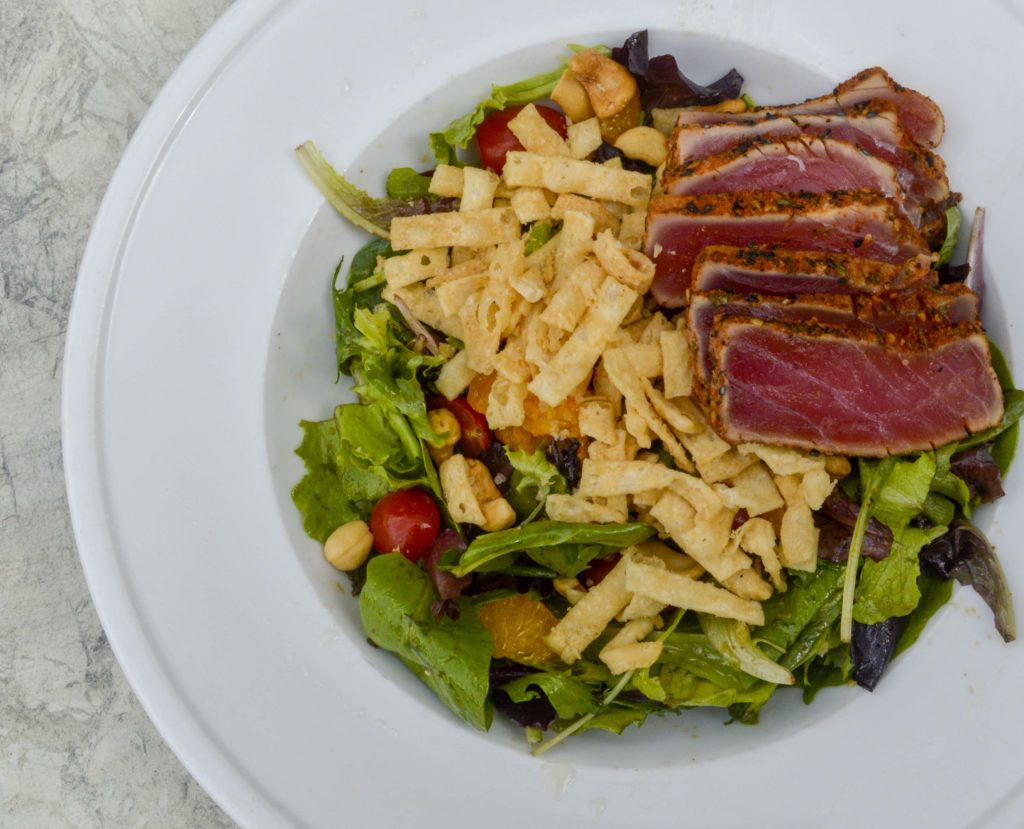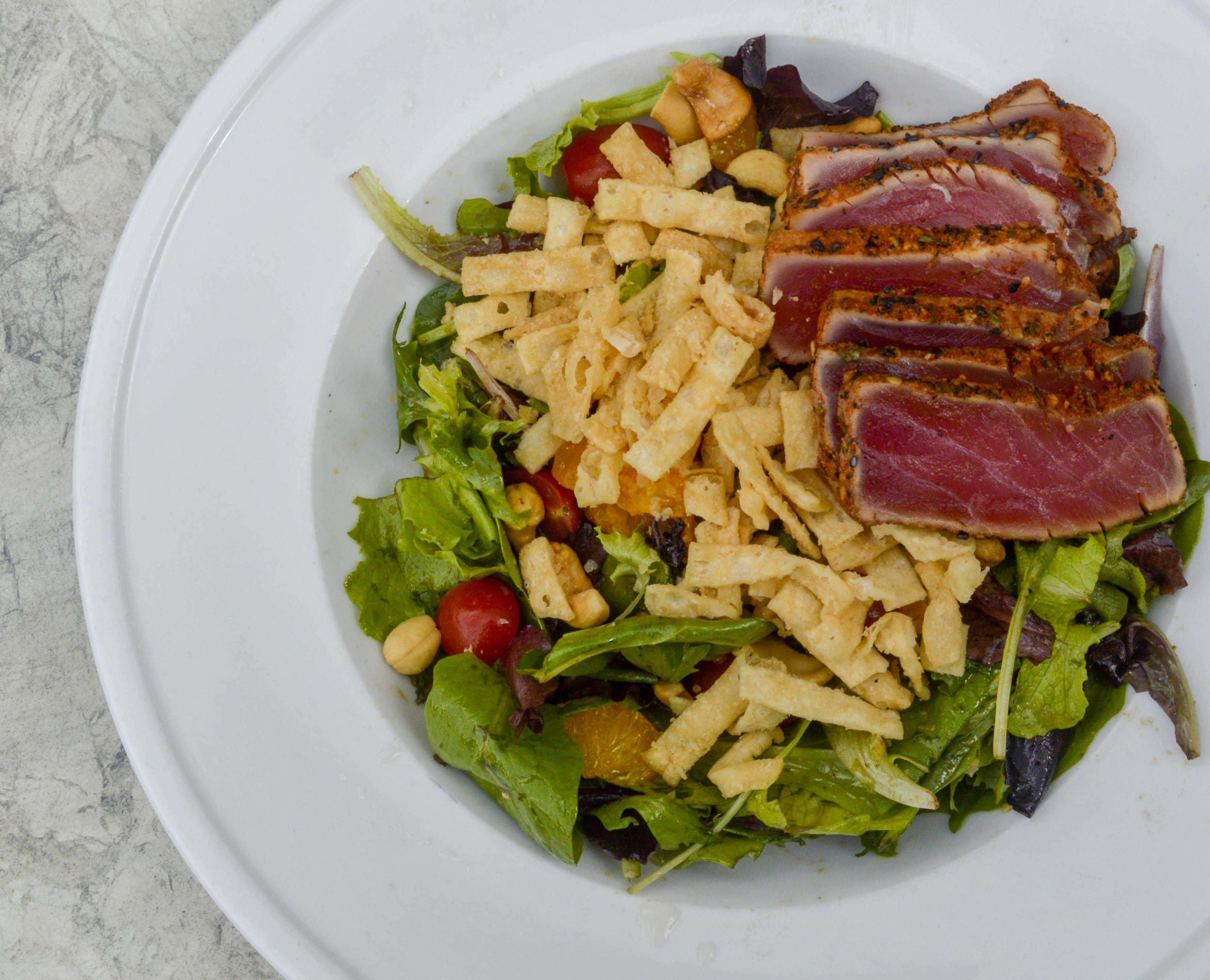
By Whitney Elfstrom
Two years ago, I wrote an opinion piece about why I chose to go vegan.
It wasn’t an article where I tried to shove my beliefs down the omnivorous throats of my readers, but rather one where I explained that the vegan lifestyle worked for me and I understood if it didn’t work for everyone.
At that point, I was celebrating my year of veganism, and I felt healthier and happier than I ever had before. But in September of last year, all of that changed.
It wasn’t because I suddenly stopped caring about animals, the planet or my health. Actually, it was because of my health that leaving veganism behind ever landed on my radar.
Beginning in May 2018, I was sick every three weeks. My summer was filled with trips to the Wellness Center. My days off from my internship were spent in bed.
After I was stuck in bed with a 103.5-degree fever during my weeklong New York City vacation, I finally started to connect some dots.
Whenever I traveled, my immune system freaked out. Concentrating on anything for more than a few minutes was difficult. Completing even the simplest tasks left me exhausted. My nights were spent tossing and turning, and if I managed to fall asleep, I would wake up every few hours. My hands were like ice even in the heat of a Florida summer.
A quick Google search of my symptoms clued me in that I might be anemic, and after blood work, it was confirmed. My first step was to take iron pills to see if anything would get better, and while my red blood count did increase, it still wasn’t as high as I would have liked.
I realized that while I was still eating vegan, I was no longer eating big bowls of fruits or vegetables like I did when I first started out, not because I didn’t want to, but because my busy schedule didn’t allow time for home-cooked meals.
This meant the most of my meals were eaten while standing up in my kitchen before running to class and consisted of PB&Js or veggie burgers covered in hummus.
My mom and best friend encouraged me to add fish and eggs back into my diet, but I wouldn’t hear of it. I had been vegan on-again, off-again since I was 17, but during that conversation, I had been fully vegan for two and a half years and had no intention of changing again – even if it was detrimental to my health.
This was only further confirmed after I saw salmon being cut at the sushi restaurant I worked at. I frantically texted my mom that there was no way I would ever consume fish again.
“My concern is for your health, not the animals,” she replied.
That conversation was in August of last year.
After doing some soul-searching, I realized the majority of my reasons for not adding animal products back into my diet was because I was worried about the backlash I would receive from the community that once warmly welcomed me. But basing a decision as important as my health around what others might think seemed juvenile.
So, after three months of going back and forth, I ate shrimp fried rice, and the world didn’t explode.
When I ordered a fish salad at lunch with a vegetarian friend for the first time, instead of jumping down my throat, he accepted my change and moved on with our meal.
Six months later, after my boyfriend assured me it wouldn’t make me a bad person, I ate an egg and smoked salmon breakfast sandwich, and the sky didn’t fall.
These decisions weren’t made in a split second or without careful consideration. They were made after months of self-reflection and research. I shouldn’t feel bad about choosing to forgo a set of rules I made for myself at 17.
This doesn’t mean I’m going to suddenly start eating chicken nuggets or order a prime rib next time I go to dinner.
In fact, I don’t see the need to add in any other animal products to my diet. With vegan brands like Gardein, Follow your Heart, So Delicious or Kite Hill, I have plenty of options to pick from whenever I’m craving any meat and dairy replacements.
What I said in my last vegan opinion piece still stands:
I am a firm believer in everyone doing what is best for their own body. If it’s veganism, then that’s wonderful, and if not, well, then who am I to judge?




Peer pressure is a difficult hurdle to overcome–even for adults. No doubt there is a way to go vegan that is healthy for some but judging from the number of recruits that fall from the wagon citing health reasons, success is less common than failure. And, unfortunately, many of those who wash out will not do so until their system is seriously compromised. If health is your concern, then follow the doctor’s orders and eat meat sparingly. Avoid processed foods and sugar, and get more exercise. If morality is your concern, then consider that there is no line between “good” food and “bad.” To suggest the existence of a cruelty-free meal is a dangerous and self-deluding denial of the damage inflicted by any meal. There is no form of agriculture that does not destroy every wild animal on the lands converted to that purpose. All food exists along a continuum of death and damage, and so veganism demands abstinence from meat in favor of superior options. But if the goal is to adopt the least destructive diet, then why stop at meat? Why not avoid the many plant favorites that impose similarly unnecessary destruction? It makes no sense at all to proclaim the joy of “vegan” beer, wine, coffee, chocolate, avocados or cashews given the enormous destruction resulting from their production. In the end, there is no perfect diet and no simple mantra provides the nuance necessary to excel in that regard. Our best solution is to educate ourselves about human and environmental health, ignore the pressure from advocates on either side, and make the most responsible choices we can live with–after all, no one is going to force these choices on an unwilling adult population, anyway.